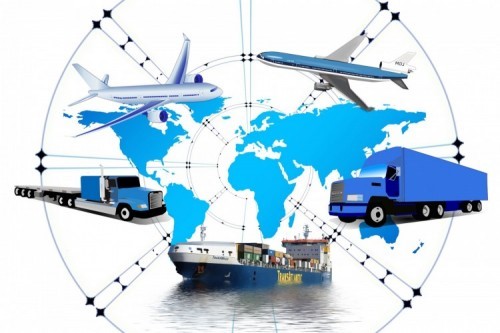Now happening: a major achievement in logistics
The logistics sector and closely related transport sector always prioritise speed and efficiency. “But during the coronacrisis, these are crucial sectors that supply hospitals, drugstores, and supermarkets. They are especially crucial when people hoard as a result of the drastic measures that are taken to slow down the virus.”
Fontys has teachers and students from many study programmes that can learn from the events that are currently unfolding. In a series of articles, Bron will have teachers and other Fontys-experts from their perspectives explain what the coronavirus exposes.
These are the words of Pascal Swinkels, project manager at Fontys Hogeschool Techniek en Logistiek. Even though the coronavirus is shutting down more and more sectors, there are some sectors that have to put all hands on deck. And one of these sectors is logistics “This crisis is an indicator of how chains deal with these kinds of extreme disruptions,”
Peaks in sales
According to Swinkels, big supermarket chains have enough products in stock at their distribution centers. But the unexpected peak in sales that are occurring, because of the hoarding is making it a challenge to restock all these products. “Known peaks in sales, during Christmas for example, need weeks of preparation. Now everything must be done in mere days.”
Swinkels is calling this ‘a major achievement in logistics’ because the supply chain is making it work. “Three times the usual amount of trucks and rides are needed to get supermarkets to refill their shelves. Furthermore, there are also sick truck drivers.” Therefore, work needs to be done quickly, but also flexible. There are even sectors that are offering their transport capacities to supermarkets, because their own sectors are coming to a standstill, because of the coronavirus.
Redistribution of supplies
Another situation that the logistics sector has to deal with is called the ‘redistribution of supplies’. “An example is France, where an area in the Northeast has a number of infections that are above the average. Supplies need to go to this area with haste.”, explains Swinkels. “It is not just food and beverages, but also different types of products for hospitals.”
Therefore, upscaling is currently a topic of discussion in the logistics sector. “And at the same time, preparations need to be made for an even bigger peak, because we’re unsure about what else is coming. Thankfully, the logistics sector has made many strides in digitalization that result in more transparency in the supply chain. To clarify, this means that companies are increasingly aware of where their products are at any time.”
More flexibility
This optimisation of logistics processes is something that Swinkels, in cooperation with students and colleagues, conducts a great deal of research for. “The large chains, in particular, can, therefore, switch real-time and reposition more smoothly, which means they can also respond more quickly and flexibly to all kinds of disruptions. Chains are becoming resilient, or more flexible. That's really essential in times of crisis like this one. ”
Swinkels knows that there are no general guidelines for the logistics sector in these types of situations. “Production firms are responsible for themselves. Most firms have a good idea of their crucial process and how to organise them in case they fail.”
“But calamities are of course hard to imagine. Such as the volcanic eruption on the 10th of April in Iceland, which resulted in less air traffic and the stagnation in the supply of high-tech products. At that time, companies rapidly thought of alternative ways via other European airports and roads.”
Local for local
Well-designed scripts for different types of scenarios are therefore the answer to the question of how the logistics sector can deal with any crisis. “What can happen and what alternatives are there?”
“One of the possibilities is to produce more regionally.” Many companies have moved their production to distant and cheaper low-wage countries, but that does result in longer supply chains. And this is problematic. For that reason, it is already suggested that masks should be produced here. We call it Local for Local.”
[Anke Langelaan]






